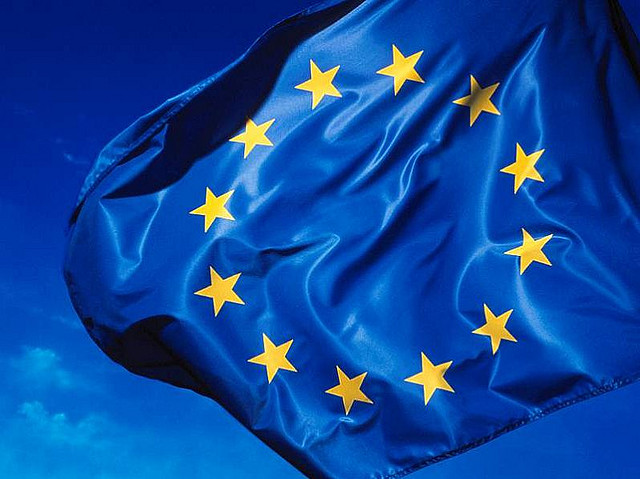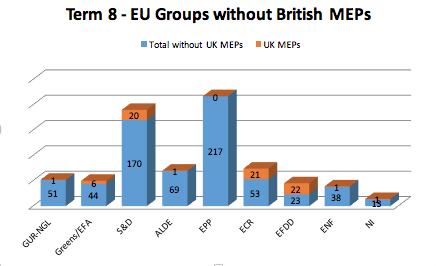European Union policy would change in a number of areas if the UK were to vote to leave
How will the direction of EU policies change if the UK leaves? Doru Frantescu, director and co-founder of VoteWatch Europe, predicts five likely changes if the European Parliament loses its British members.
1: Greater regulatory burden on EU businesses
British politicians are much more likely to favour red tape than their continental counterparts. If they no longer take part in the decisions regarding the internal market, the pressure on the EU decision-making apparatus to simplify legislation and reduce red-tape will be much weaker.
For instance, in May 2015 nearly all British Members of the Parliament (MEPs), regardless of their political family, supported a move to cut red tape. They all voted in favour of a paragraph that backed the European Executive’s approach to withdraw from the legislative process those bills that are considered obsolete, or are thought likely to add too much administrative burden on the institutions and businesses working across the EU.
The provision was adopted by 412 votes in favour, 258 votes against and 11 abstentions. Without British members, the majority that supported the cut in red-tape would definitely have been smaller: the result of the vote would have been 357 in favour, 251 against and 10 abstentions. The smaller the EP majority behind a Commission proposal gets, the more the Commission becomes hesitant to change the course of policy. Notably, within the S&D group the British Labour delegation dissented, voting alongside the centre-right in favour of less legislation.
2: Weaker copyright protection in the EU
In September 2010, the EU Parliament adopted a report titled Enforcement of intellectual property rights in the internal market. This non-legislative resolution was largely in favour of strengthening the position of rights holders, and asked for the introduction of a set of measures to combat intellectual property infringements. The text was controversial and was approved by a small margin of votes. The resolution was adopted by 328 votes in favour to 245 against and 81 abstentions. The MEPs from the two main British delegations, Labour and Conservative, all voted in favour of the text. Notably, Labour MEPs did so even against the line of their Socialist continental counterparts.
In the absence of British MEPs the vote would have been 295 votes in favour, 225 against and 78 abstentions. After the 2014 EU elections the majority supporting stronger copyrights has diminished substantially, and without the British it would no longer be a majority at all.
3: Smaller EU budget as a whole – but bigger contributions from other states
The disputes between Brussels and London about how much the UK should contribute to the EU’s coffers are familiar. Every year, when voting on the EU budget, the pro-European parliamentary groups try to increase it, while the British representatives oppose this. The same happened recently when voting on the resolution addressing the 2016 draft budget. The text was supported by 422 votes in favour, 173 against and 85 abstentions. British MEPs from all political groups voted against the resolution. If they had not taken part in the vote, the result would have been 421 votes in favour, 116 against and 78 abstentions.
So if Britain leaves, the total EU budget would certainly be smaller without the British contribution. On the other hand, the Commission and the Parliament would have a better chance of extracting bigger contributions from the remaining member states in the absence of British opposition.
4: Stronger push for increased and harmonised taxation
If British MEPs had not been there, tax harmonisation across the EU would have been more likely. In March 2015, the Socialist, Liberal Democrat and Greens/EFA MEPs wanted to adopt a measure calling on the EU to put forward tax harmonisation measures. The proposal was rejected (308 votes in favour to 370 against) as most of the centre-right MEPs (People’s Party and Conservatives) voted against it. Interestingly, inside the Socialist and Democrats group, the British Labour delegation again disagreed with the position of continental counterparts and voted alongside the centre-right. Without the UK, the majority against would have been only 19.
5: Less support for nuclear and unconventional energy sources
Similarly, there would be less backing for exploiting unconventional energy resources such as shale gas. Another amendment to the same report, asking member states “to refrain from any shale gas exploration and exploitation activities”, was also rejected by 289 votes in favour, 388 against and 25 abstentions. Without the British delegation, the vote would have been 276 in favour, 329 against and 25 abstentions.
—-
The views in this blogpost are those of the author and do not represent those of Democratic Audit UK, nor the LSE. It originally appeared on the LSE BrexitVote blog. Please read our comments policy before posting.
—
 Doru Frantescu is the director of VoteWatch Europe and its co-founder. He has lead the the development of its data analysis and digital communication tools. He is the main author of numerous reports on voting behaviour in the European Parliament and the EU Council of Ministers.
Doru Frantescu is the director of VoteWatch Europe and its co-founder. He has lead the the development of its data analysis and digital communication tools. He is the main author of numerous reports on voting behaviour in the European Parliament and the EU Council of Ministers.







 Democratic Audit's core funding is provided by the Joseph Rowntree Charitable Trust. Additional funding is provided by the London School of Economics.
Democratic Audit's core funding is provided by the Joseph Rowntree Charitable Trust. Additional funding is provided by the London School of Economics.
European Union policy would change in a number of areas if the UK were to vote to leave https://t.co/GBavuSqpTX #Europe #EU #Brexit
EU policy would change in a number of areas if the UK were to vote to leave #Brexit https://t.co/CjLNiOBEdY (via @democraticaudit)
EU policy would change in a number of areas if UK leaves By @dorufrantescu of @VoteWatchEurope on @democraticaudit https://t.co/HQhpPmEwap
European Union policy would change in a number of areas if the UK were to vote to leave https://t.co/8vO9nvknlq
European Union policy would change in a number of areas if the UK were to vote … – Democratic… https://t.co/F8NygrezsU #europeanunion
European Union policy would change in a number of areas if the UK were to vote … – Democratic Audit UK https://t.co/UNIbH1wZ9d
European Union policy would change in a number of areas if the UK were to vote to leave https://t.co/hNqDxGPiAA
RT @RedHotSquirrel: #EU policy would change in a number of areas if the UK were to vote to leave | Democratic Audit https://t.co/xJwi5207Ig…
RT @RedHotSquirrel: Strong incentives for Hungary, Portugal, Denmark, Sweden, the Netherlands and others to join us outside the EU. https:/…
European Union policy would change in a number of areas if the UK were to vote to leave https://t.co/mb40eh8XXj https://t.co/umsQsfAtXf